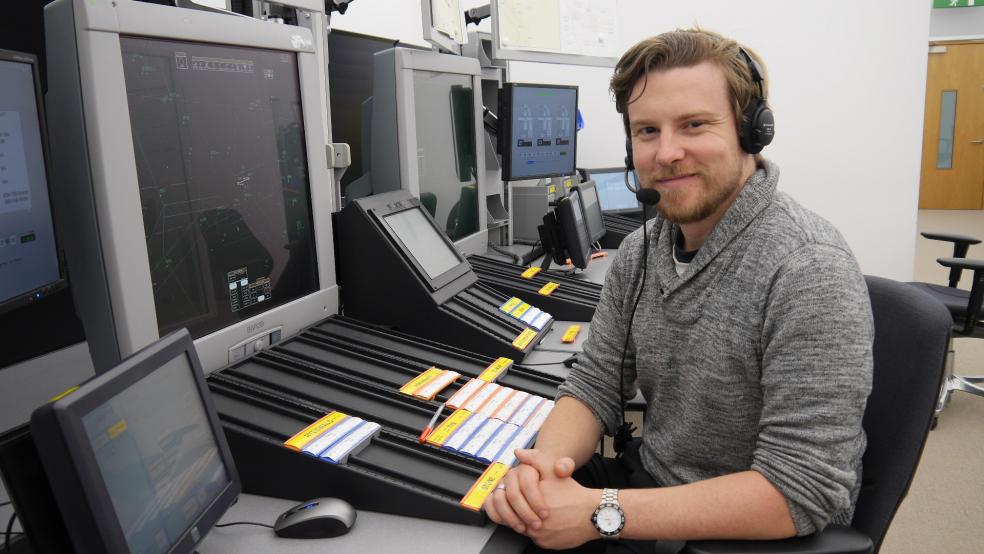
Feel the Force: Plymouth graduate Star Wars actor swaps the big screen for a radar screen
He helped defeat the Galactic Empire as an X-wing pilot in Star Wars: Rogue One, but now Wiltshire-born David Wright has set his sights on becoming an air traffic controller.
The former actor took on board various background roles in films and television shows including Tarzan and the recent Netflix hit The Crown. He also doubled for one of the lead characters in Fantastic Beasts and Where to Find Them wearing a large, padded 1920s style suit.
Although he enjoyed the variety of working on-screen, he wanted a change of career.
As a commercial helicopter pilot, David was aware of NATS. He scoured through the website to see if there was a role that he could transfer his skills and was delighted to see that NATS was recruiting for trainee air traffic controllers.
“I wanted what most people want, a fulfilling career doing something meaningful that preferably paid well! And I was keen to remain in aviation as that’s what I was most interested in,” said David.
“Flying and acting were actually very similar in that you didn’t know when or where your next pay cheque would be coming from.
“I thought air traffic control would be as technical a challenge as flying, which it is, but with financial security. After just a day in front of the radar, I knew no two days would ever be the same and it requires a lot of skill.
“It’s going to be a job that I’m always going to be interested in and never going to tire of.”
After the initial application process, which included interviews and computer tests that look at skills in alertness, reaction time and multi-tasking skills (trip to Dagobah not required), he took a place at the NATS training college in Whiteley, Hampshire, in June 2016.
The 31-year-old from Marlborough has been learning the basics of air traffic control theory, including meteorology, navigation and aircraft performance. He’s training to become a controller who helps aircraft to transit through high altitudes, so has begun putting the theory into practice on the simulators.
“Working on the simulators can be pretty exhilarating,” said David. “When you’re on top of things and you’re doing everything correctly it’s amazing – a real thrill.
“There’s nothing quite comparable, not even flying an X-Wing!
“It’s such a great feeling when you’ve done a great run and also to know you’ve seen how far you’ve progressed.”
But what are the key aspects that make a good controller?
“You need good organisational skills, but not at the expense of being inflexible. I work best when I’m being challenged and having to think hard to make decisions,” he said.
“I don’t think there’s one personality type to make a great air traffic controller – people come from all walks of life.”
For David the learning isn’t over. After his next set of exams he’ll progress to the next level of learning, on-site at an air traffic control unit either at NATS’ Swanwick centre in Hampshire or in Prestwick, Ayrshire, Scotland.
David recalled the limited job available when he graduated from university in Plymouth and wished he’d been made aware of air traffic control as a possible role. It’s very different from anything taught at school or university.
“I certainly wish I’d got here at a younger age because you’re still in that learning mind-frame,” he said. “If you’re fresh out of college or university it’s easier to learn than if you’ve had a gap between learning.
“There can be no such thing as a bad air traffic controller; you have to be trained to an incredibly high standard as the job’s entirely focussed on safety.
“Being an air traffic controller offers a really attractive lifestyle. Although I’ve not got the job yet, I’m determined to get my validation and I’m going to keep working hard to get there.”
NATS is recruiting for trainee air traffic controllers. For more details on how to become an air traffic controller or to apply visit http://www.nats.aero/careers/trainee-air-traffic-controllers/













